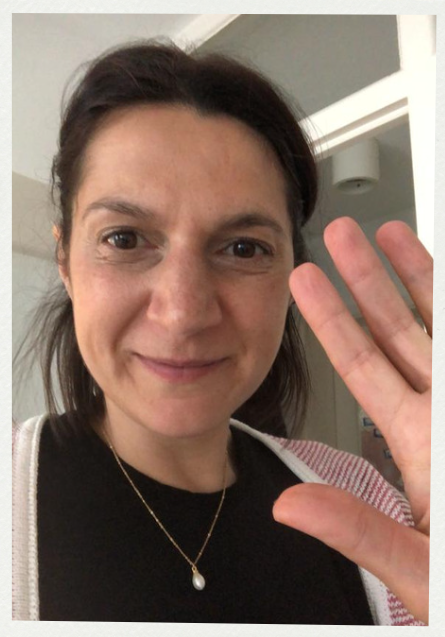
As leaders, we’re great at pushing ourselves to meet deadlines and complete tasks on time.
THE PROBLEM IS…
We expect others to do the same, and when they don’t, we tend to stay silent, and don’t deal with the issue. Sounds familiar?
WHEN A COLLEAGUE DIDN’T COMPLETE A TASK ON TIME, DID YOU ASK YOURSELF…
- Did I say something about it to them?
- Did I have a conversation with them?
- Did I look at what can be done next time?
- Did I communicate how their behaviour impacted the team?
If your answer is “no” – you’re not alone.
We’re not always 100% sure what to say in these situations, and there is also the risk of making them feel uncomfortable.
The truth is: HAVING A CONVERSATION WITH SOMEONE ABOUT NOT DOING THEIR WORK PROPERLY ISN’T ALWAYS EASY.
That’s where our 6-step checklist comes in; it’s designed to help you be kind, direct and grounded while handling broken promises.
Just in case you’re saying to yourself…
“Yes, I know that having this conversation would improve my team’s performance, but it’s not my job to fix it—they should do something about it!”
We get it. But here’s the thing…
You have the power to deal with the situation and improve your team’s performance with one simple conversation. And we’ll show you exactly how to do it.
1. Clarify your intention
Before the conversation, become aware of your intention.
Ask yourself “What’s my intention?”
Is it that you want to blame them or is your goal to make sure promises are kept in the future?
Take the time you need to process your emotions and gain clarity.
When you’re ready, make sure your intention is focused on creating a positive outcome: “I want to make it work in the future. I want to support this person to grow.”
2. Start with kindness, support and directness
Often, we fear disappointing people because we don’t believe they have the emotional resilience to handle the situation, so we try to protect them.
We either say nothing or avoid starting the conversation directly.
When we don’t start the conversation directly, it leaves people confused—small talk like ‘How was your weekend?’ only adds to the uncertainty.
They’re left wondering, “What do you want to say?”
Instead of protecting them from discomfort, recognise that having the conversation empowers them to grow.
Start with a supportive statement: “I’m bringing this up because I trust that you can handle it.”
Mel Robbins and Jefferson Fisher discuss this concept in-depth here —watch minutes 13:55–19:10 for insights.
3. Acknowledge what was agreed
During the conversation, firstly acknowledge what was agreed and what actually happened.
Try this “We agreed that this will be done by today and it’s not complete.”
Nothing more.
No details, no story or opinion about it.
The way you say it can significantly affect how the other person receives it—whether it comes across as blame, a serious issue, something wrong, or simply as an event that occurred.
4. Ask and Listen
Next ask “What led to that? How come this has not been done?”.
Just listen – it’s their experience of what happened, you don’t need to agree or disagree with what they say.
They might say “but the client did not reply on time” and you might want to jump in and say “but you could have told me”.
Don’t say that, just listen.
The intention of the conversation is not to find out who’s to blame or who’s right or wrong.
The intention of the conversation is to make it work in the future for both of you.
5. Share how it affects the team
Next, share the consequences on the team, you, them and anyone else.
You can say something like:
“It doesn’t work when we agree on something and it’s not complete by the deadline and you don’t inform me.
The consequences are: Everybody is expecting the release, and I’m left informing them at the last minute that we aren’t ready.
I have to explain to my boss why this happened, which takes up time I hadn’t planned for.
It affects the entire team, as we won’t deliver it on time.”
6. Explore next steps together
Use questions like:
- “How can I support you?”
- “What do you think you could do differently next time something like this happens?”
- “Is there anything that I can do differently?”
And make requests like “Next time can you let me know ahead of time that it won’t be finished by the deadline? And we can work together to see how we can deal with it.”
I provide more details about the steps in this video.
Hi! I’m Andra
and this is why I’ve created this tool
I’ve spent over a decade using tools like these to improve team performance. For the last 3 years, as certified leadership and communication coach, I’ve been helping managers and leaders like you tackle these same challenges.
Through my experience, I’ve seen just how important it is to have the right tools and strategies in place to communicate effectively and address issues as they arise.
That’s why I’ve created this quick and actionable 6-Step Checklist—to give leaders like you a simple, effective way to overcome the frustration of broken promises, and realise you have the power to have a greater impact on those around you.
You can start today having the conversations that will transform your team.
This is how my work has helped other Leaders!
During the workshop I found out a very clear structure of how to work with my triggers. The exercises we practiced helped me discover a new potential way to handle my triggers. Now it’s up to me to put to work what I learned. Thank you, Becca and Andra!
I enjoyed this workshop since it tackled a relevant issue faced in everyday’s life. I learnt about an efficient blueprint provided with the pleasant guidance of the coaches. A very interactive session was delivered, based on the participants’ storytelling.
As a result, I would recommend this workshop to anyone curious to learn and improve themselves.
A very well organised and professional workshop. Real day to day situations were used for the working exercise.

